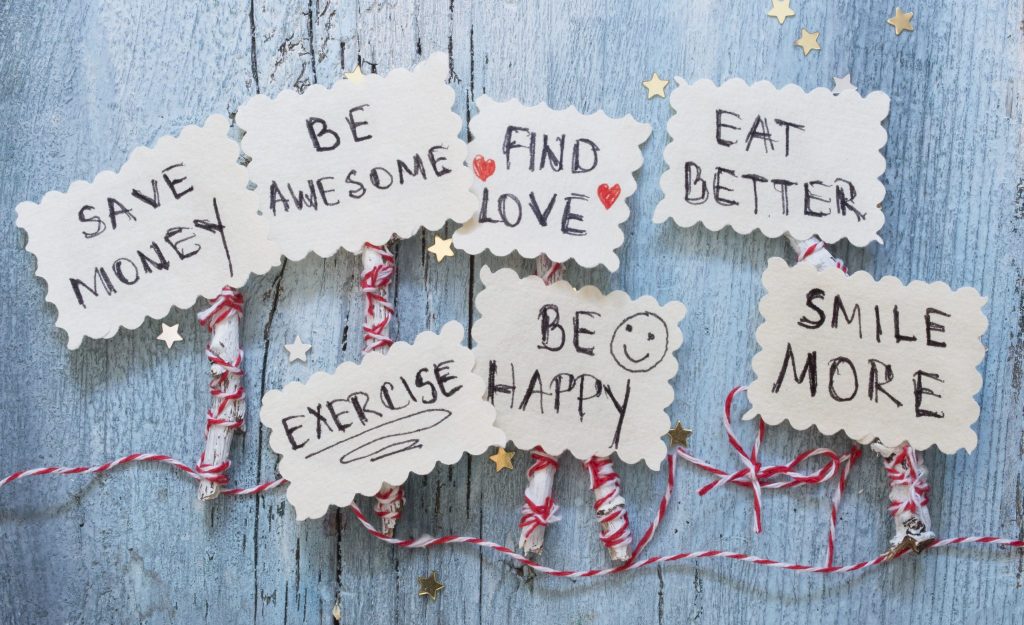The One Word Resolution

Here we go with that time of the year again- The New Year. This is the time of the year where many of us chose to make hefty New Year’s resolutions. Having goals is a great way to make positive change in your life. The problem with the notorious New Year’s Resolution is that statistics suggest that about 80% of all resolutions fail by the second week of February. In fact there is even a formal name for the day that most people have totally given up on their goals, “Quitters Day” on February 12. It is believed that many people fail because they get tired, overworked, overwhelmed, or they did not set a realistic goal to begin with. So this year, rather than being just another statistic, consider going about making your resolution in a different light. Let me introduce you to the concept of a word resolution!
Yes, that’s right! Ditch the lists and lists of goals and focus on one single word. The first thing that you will need to do here is chose your word. Start by asking yourself the question: What type of person do I want to be by the end of the year? Take some time to reflect over the things that are going well for you as well as areas where there is room for personal improvement. What are some of the characteristics of the person you want to become? From here, choose a single word that encompasses the broader range from your points of reflection and resonates most at the gut level. Finally, you will want to write the word down and place it somewhere where you can see it on a daily basis.
A single word may serve as a filter and a simple reminder. In addition, it may serve as a mindfulness intervention as it gently brings the attention back into the present moment upon. It’s a simple mantra that you have created for yourself to keep you focused on what you are striving for and who want to become. Some examples are kind, patience, present, etc. So this year, what will your word be?!
Written by Danielle Wahl, M.A.
Schedule a FREE Consultation
We believe in an integrative and holistic approach to help you make the changes you want. Contact us now to schedule an appointment or to request a 20 minute free phone consultation. During this session, you will be invited to share your story and ask any questions you may have.
Recent Articles
Identifying Different Parenting Styles
Much like everything in life, there are differences in the way people parent their children. People often want to know…
Signs Someone You Love May Be Hiding Depression
Depression can be scary for many people. Depression can make individuals feel as though they are losing control over their…
Fighting the Good Fight with Couples Therapy
Tension and conflict are normal and even healthy parts of any relationship. Sometimes, tension and conflict work out by itself.…
What Is Family Therapy?
In any family, it is normal to have a certain level of conflict. In fact, conflict might even be healthy…





